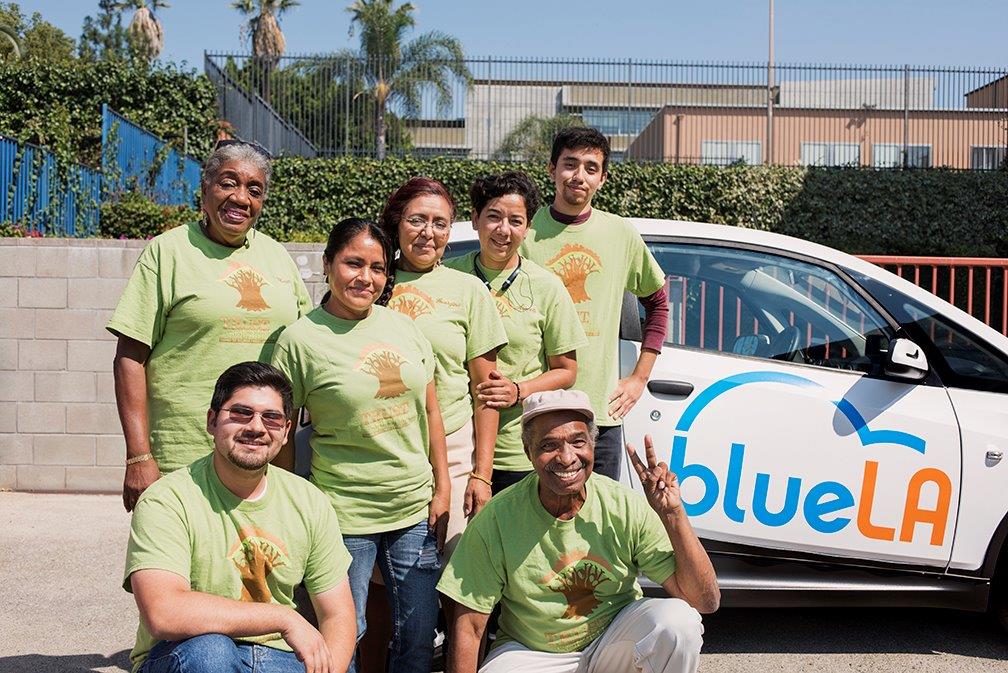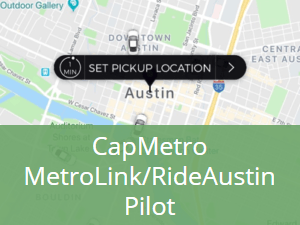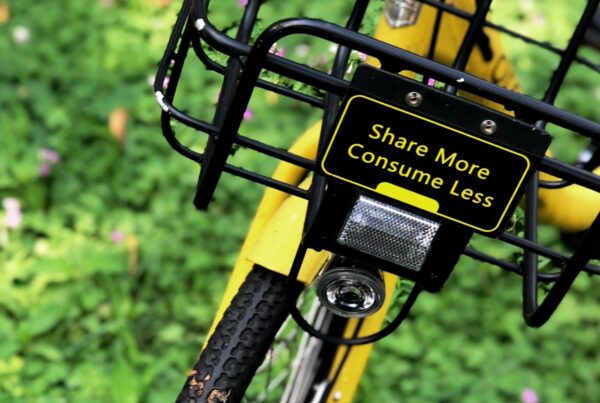Welcome to the Shared-Use Mobility Center’s weekly guide to the most impactful news, thought-provoking articles and innovative technologies that are shaping our transportation future. We believe in sharing information, just like sharing cars, bikes, and scooters, so if there’s anything additional you’d like to see, just drop us a line.
SUMC News
On April 20, 2019, SUMC and the City of Los Angeles celebrated the one-year anniversary of the BlueLA Electric Vehicle Carshare pilot, which gives a new mobility option to low-income communities in Los Angeles and reduces Greenhouse Gas Emissions. Thanks to the program, 260 metric tons of CO2 were avoided in 2018. The program was recently awarded a $3 Million grant from the California Air Resources Board to scale up and expand into South LA, East Los Angeles, and East Hollywood in Phase Two.
Download the BlueLA case study with lessons and best practices.
There’s a brand new case study on the MOD Learning Center profiling the MetroLink Pilot by CapMetro and RideAustin to fill the first/last mile transit gap. Take a look.
Requires login for a free account.
Ridehailing/Carsharing/Carpooling
Car2go has temporarily halted its free-floating carsharing service in Chicago after being hit by a wave of car thefts, with about 100 of its Mercedez-Benz vehicles going missing.
With Chicago’s ridehailing data now public, Streetsblog Chicago takes a look at the most popular routes. The “winner”? A 1-mile trip from the city’s River North neighborhood to west of the downtown Loop.
There’s a new public-private partnership in Seattle, with Via piloting an on-demand shuttle service to five Sound Transit Link light-rail stations. Plus, you can pay with your ORCA card.
Earth Day was for sharing. Lyft offered free bikeshare rides and Via disabled its private-ride feature. We wish Earth Day was everyday.
Partnerships and Programs
Alabama’s plan for infrastructure improvement includes expanding a network of electric vehicle (EV) charging stations throughout the state to encourage EV adoption.
New York State DOT and NYSERDA are looking for innovative transportation solutions to cut energy consumption and reduce greenhouse gas emissions with a new $3 million partnership. Any takers?
Speaking of EVs, a $25 million program from Xcel Energy will expand public EV charging networks in the Twin Cities and across Minnesota, with local carsharing operation Hourcar on board to electrify its mobility fleet.
Bikesharing and Micromobility
A new report by NACTO shows that shared e-scooter trips have surpassed docked bikeshare trips in the US with 38.5 million trips taken in 2018, compared to the ~36.5 million trips taken by bike.
Hear Lime co-founder Brad Bao discuss the company’s shift from bikes to scooters, and how it wants to prevent drunk riding with sensor-technology on The Vergecast.
San Francisco offers an accessibility deal: it will double the number of dockless scooters it allows on city streets if companies expand participation in discount-fare programs for low-income areas.
After a successful pilot with 61,000 trips taken, NYC DOT sees a possible extension of the year-long dockless bikeshare project launched in Staten Island last summer.
Transit
LA’s journey to faster, more efficient bus lines has been a silent successor to the city’s 19th-century streetcar system, and smart data may be the next step in its transit evolution.
What does a retired engineer with 40+ years of experience in federal project construction management think of Maryland’s plan to expand Interstates 495 and 270? Scrap it and invest in mass transit instead.
According to a WPI Economics study, “poor design in the urban environment” negatively affects mental health so by improving infrastructure, cities can help elevate it while increasing sustainable mobility use.
Check out District Department of Transportation’s latest “DDOT Delivers” radio show with Terry Owens and Sustainable Transportation Branch Manager Kim Lucas discussing the capital’s ever-expanding array of sustainable mobility options.
Technology
One ride at a time, autonomous shuttles have revved up from closed pilots to potential first/last mile transit connectors in the mobility streetscape while city officials, self-driving tech companies, and AV hardware manufacturers converge to figure it all out.
Uber’s Advanced Technologies Group (ATG), which handles the company’s autonomous vehicle technology, is going to get a $1 billion boost in funding from Toyota, Denso, and Japan’s SoftBank. Not bad.
St. Catharine’s Transit Commission in Ontario will be the first agency to support of Masabi’s integrated mobile ticketing payment in the Transit app.
Now you can find out where to charge up to get where you need to go on Google Maps.
Urban Sustainability
Learn how Jonadab Martinez, AKA “El Mimo” (The Mime), is using makeup and guerrilla urbanism to bring the conversation of safer streets to the public in Guadalajara, Mexico—a country with a history of a high number of road traffic deaths.
“The details of congestion pricing systems matter. Congestion pricing won’t work as traffic reduction policy if it’s hollowed out by exemptions. And it won’t work as a revenue source for transit if it’s too complex to administer efficiently.” TransitCenter has a few recommendations for officials in New York City.
Hopefully starting a trend we’ll see nationwide, a coalition of 10 non-profit organizations representing housing, smart growth, climate, transit and bicycle/pedestrian advocacy in Fairfax County, VA signed a statement to improve the sustainability, inclusiveness, and livability of the area.
Did someone forward this to you? You can sign up for our newsletter here.





